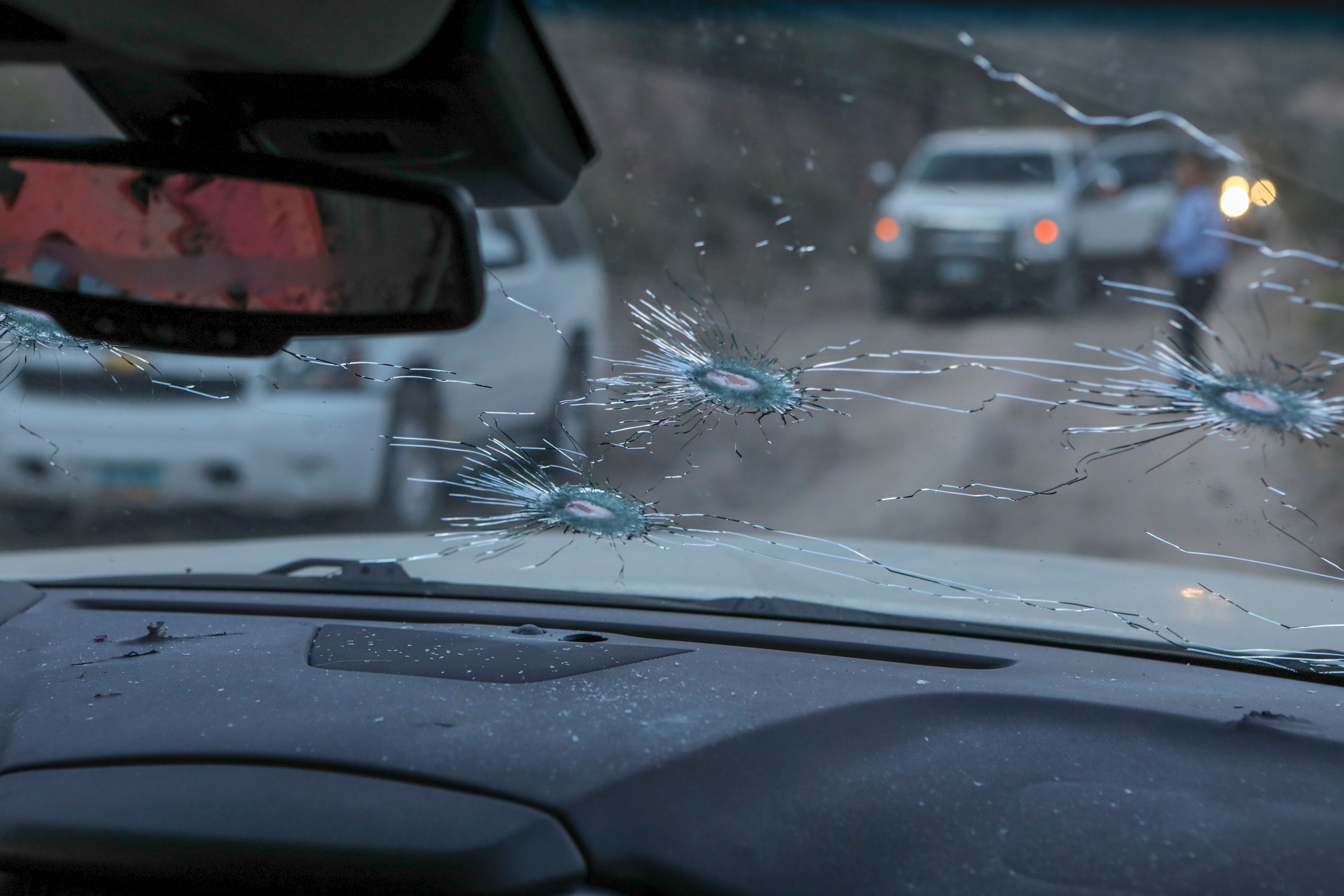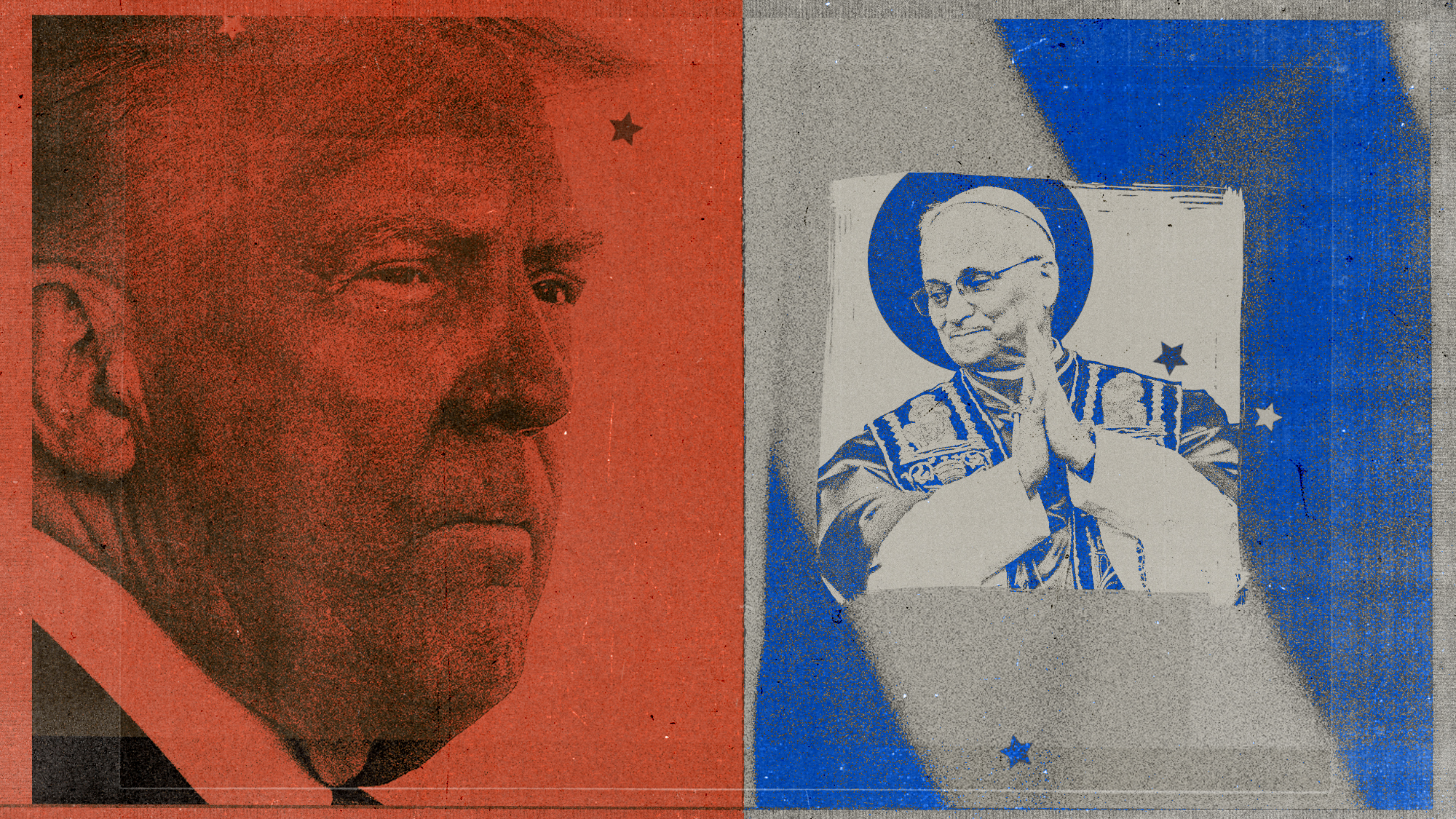Why was a Mormon family massacred in Mexico?
Fundamentalist Mexican-American community ensnared in rampant cartel violence

A free daily email with the biggest news stories of the day – and the best features from TheWeek.com
You are now subscribed
Your newsletter sign-up was successful
The massacre of three mothers and six children from a Mormon community in northern Mexico has prompted shock and anguish on both sides of the border.
The three women, in their 30s and 40s, were travelling with their 14 children in three separate SUVs in convoy along dirt roads near the town of Bavispe in the state of Sonora on Monday when they were gunned down. One car also set on fire.
Two twin babies, a ten-year-old girl and three boys, aged three, 11 and 12 were killed. Six other injured children were airlifted to hospital in Tucson, Arizona. One child, aged 13, reportedly walked 14 miles to get help.
The Week
Escape your echo chamber. Get the facts behind the news, plus analysis from multiple perspectives.

Sign up for The Week's Free Newsletters
From our morning news briefing to a weekly Good News Newsletter, get the best of The Week delivered directly to your inbox.
From our morning news briefing to a weekly Good News Newsletter, get the best of The Week delivered directly to your inbox.
The victims, all dual US-Mexican citizens, are part of the LeBaron family and wider community of La Mora, an offshoot of The Church of Jesus Christ of Latter-day Saints.
Who attacked them?
The attackers are suspected to be drug cartel gunmen.
“The motive for Monday’s attack remains unclear - though officials have speculated it may be a case of mistaken identity,” says the BBC.
A free daily email with the biggest news stories of the day – and the best features from TheWeek.com
US President Donald Trump claimed the family “got caught between two vicious drug cartels, who were shooting at each other”. He tweeted: “This is the time for Mexico, with the help of the United States, to wage WAR on the drug cartels and wipe them off the face of the earth. We merely await a call from your great new president!”
However, Lenzo Widmar, a cousin of the victims, said that despite the ongoing inter-gang violence where the family lived, the attack was no accident.
He acknowledged that “there’s been a lot of rival cartels fighting up in this area”, but also said that one of the children who survived the attack had watched as one of the mothers got out of the car with her hands raised. “They shot her anyway,” Widmar told The Washington Post. “They knew it was women and children.”
The history of Mexico’s Mormon community
The fundamentalist Mormon community in Mexico was established in the late 19th century, after the US government outlawed polygamy in 1885. Roughly 4,000 Mormons eventually made the journey to the northern Mexican provinces of Chihuahua and Sonora, which border Arizona, New Mexico and Texas.
They settled, and have gone on to become successful farmers and business owners in the region. The LeBaron family has been a bedrock of the community since its inception. Few continue to practice polygamy, after it was phased out by the The Church of Jesus Christ of Latter-day Saints in the early 20th century, but they remain closely bound by blood and marriage.
This is not the first time the family has come into conflict with the gangs. In 2009, 16-year-old Eric LeBaron was kidnapped, and $1m was demanded to free him. The Mormons refused, and Eric was released. The boy’s brother, Benjamin LeBaron, spoke out against organised crime, going on to consult with local groups against the cartels, as an activist. In response, LeBaron and his brother-in-law were taken from their homes and murdered.
The family now communicates over WhatsApp partly because local gangs cut the phone lines to their settlements. On Tuesday, Adrian LeBaron told the Daily Mail that the cartel was attempting to terrorise the community. The gunmen, he said, “killed innocent people to teach fear”.
He carried a message of defiance for the gangs: “Just as in 2009, we did not want to pay a ransom, we have never accepted when they harass you, when they extort you. I do not tell that group, I’m telling any group that exists in our Mexico that we do not give in.”
Mexico’s violent organised crime epidemic
The attack has brought into sharp relief the issue of rampant cartel violence plaguing Mexico, which has spiralled in recent years. Last year there were more than 33,000 murders in the country, this year there have been over 26,000 already. And how to handle Mexico’s epidemic of violent organised crime has become a major point of contention.
Last month, Mexican authorities captured the Ovidio Guzman Lopez, the son of infamous Sinaloa cartel boss Joaquin Guzman - otherwise known as “El Chapo”. His gang responded by bringing the city of Culiacan to a standstill and holding soldiers hostage.
Mexico’s President Andres Manuel Lopez Obrador capitulated, releasing the younger Guzman. His lenient approach has brought criticism, but he continues to argue it is the only option.
Falko Ernst, a senior analyst for Mexico at the International Crisis Group, tweeted on Monday: “Hard to imagine that what happened in Sonora today won’t impact MX-US relations and security policy in MX. Over the next days, I’d expect pressure within the U.S. to build on Trump Admin - by media and evangelicals, e.g. - and for that pressure to be passed onto Lopez Obrador.”
But in his regular news conference on Wednesday morning, Lopez Obrador said: “It’s unfortunate, sad, because children died. This is painful. But trying to resolve this problem by declaring a war? In our country, it’s been shown that this doesn’t work. This was a disaster.”
Speaking in the wake of Monday’s massacre, Arkansas Senator Tom Cotton took issue with Lopez Obrador’s strategy. “The Mexican government can’t handle this,” he said on Fox News. The Mexican leader’s approach to cartels “may work in a children’s fairy tale, but in the real world... the only thing that can counteract bullets is more and bigger bullets,” he said.
–––––––––––––––––––––––––––––––For a round-up of the most important stories from around the world - and a concise, refreshing and balanced take on the week’s news agenda - try The Week magazine. Get your first six issues free–––––––––––––––––––––––––––––––
One wrinkle in the argument put forward by Americans critical of Lopez Obrador’s strategy is that Mexico’s cartel violence is fuelled by the US black market for illegal drugs, and aggravated by the availability of US guns. One of the reasons gangs have resorted to kidnapping and extortion in recent years has been dwindling revenue from marajuana after its legalisation in certain US states.
Guns are also easily procured over the border. “Between 2007 and 2018, more than 150,000 firearms were definitively traced from Mexican criminals to gun stores and factories in the United States,” writes Ioan Grillo in The New York Times. “Last year, 70 percent of the weapons that Mexican security forces captured... were confirmed to be made or sold in the United States.”
-
 The environmental cost of GLP-1s
The environmental cost of GLP-1sThe explainer Producing the drugs is a dirty process
-
 Greenland’s capital becomes ground zero for the country’s diplomatic straits
Greenland’s capital becomes ground zero for the country’s diplomatic straitsIN THE SPOTLIGHT A flurry of new consular activity in Nuuk shows how important Greenland has become to Europeans’ anxiety about American imperialism
-
 ‘This is something that happens all too often’
‘This is something that happens all too often’Instant Opinion Opinion, comment and editorials of the day
-
 Leo XIV vs. Trump: what will first American Pope mean for US Catholics?
Leo XIV vs. Trump: what will first American Pope mean for US Catholics?Today's Big Question New pope has frequently criticised the president, especially on immigration policy, but is more socially conservative than his predecessor
-
 A year before quitting Southern Baptists, Russell Moore privately slammed SBC leaders over sex abuse, racism, psychological 'terrorism'
A year before quitting Southern Baptists, Russell Moore privately slammed SBC leaders over sex abuse, racism, psychological 'terrorism'Speed Read